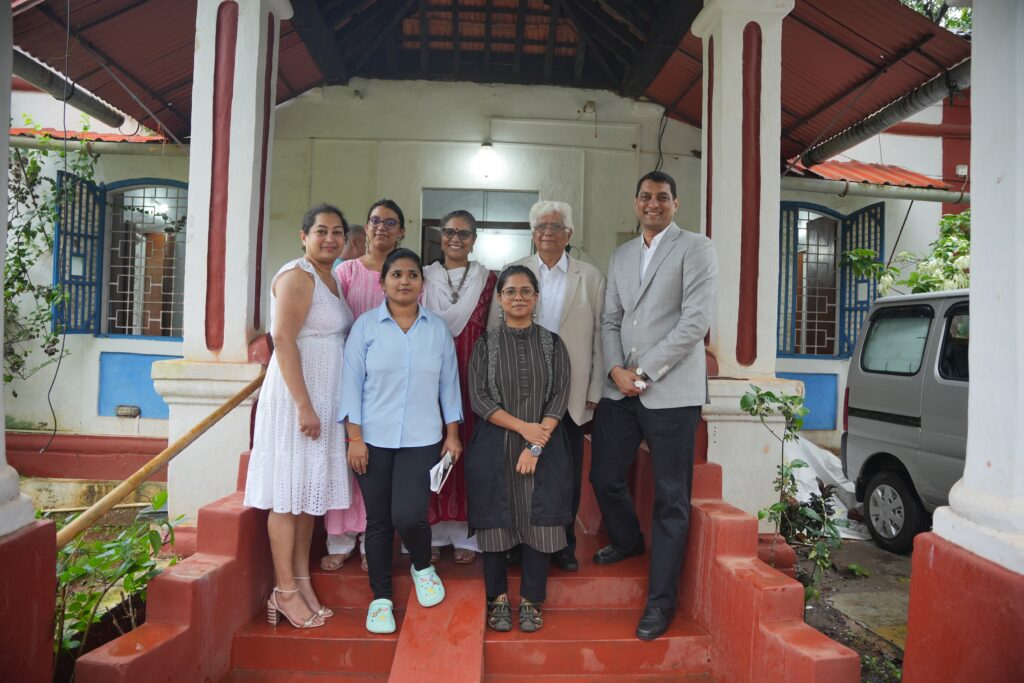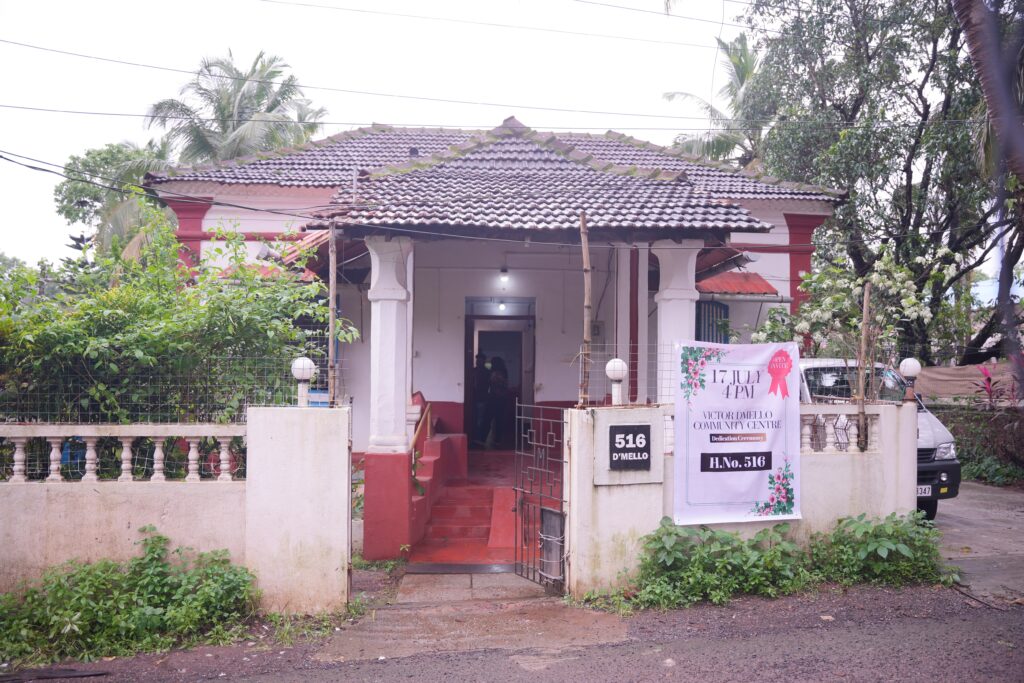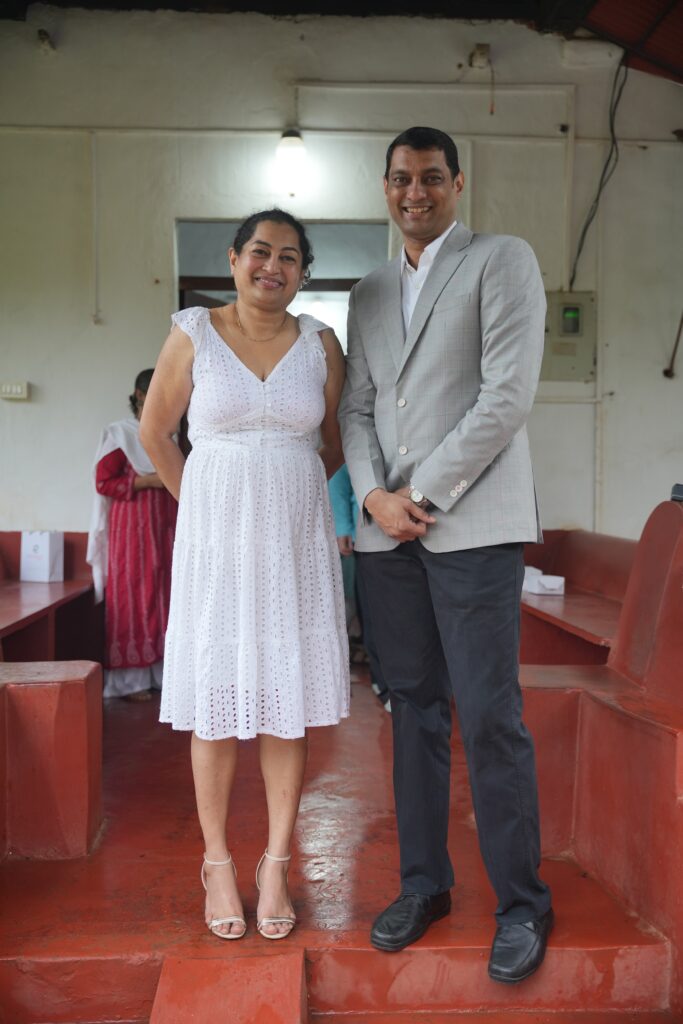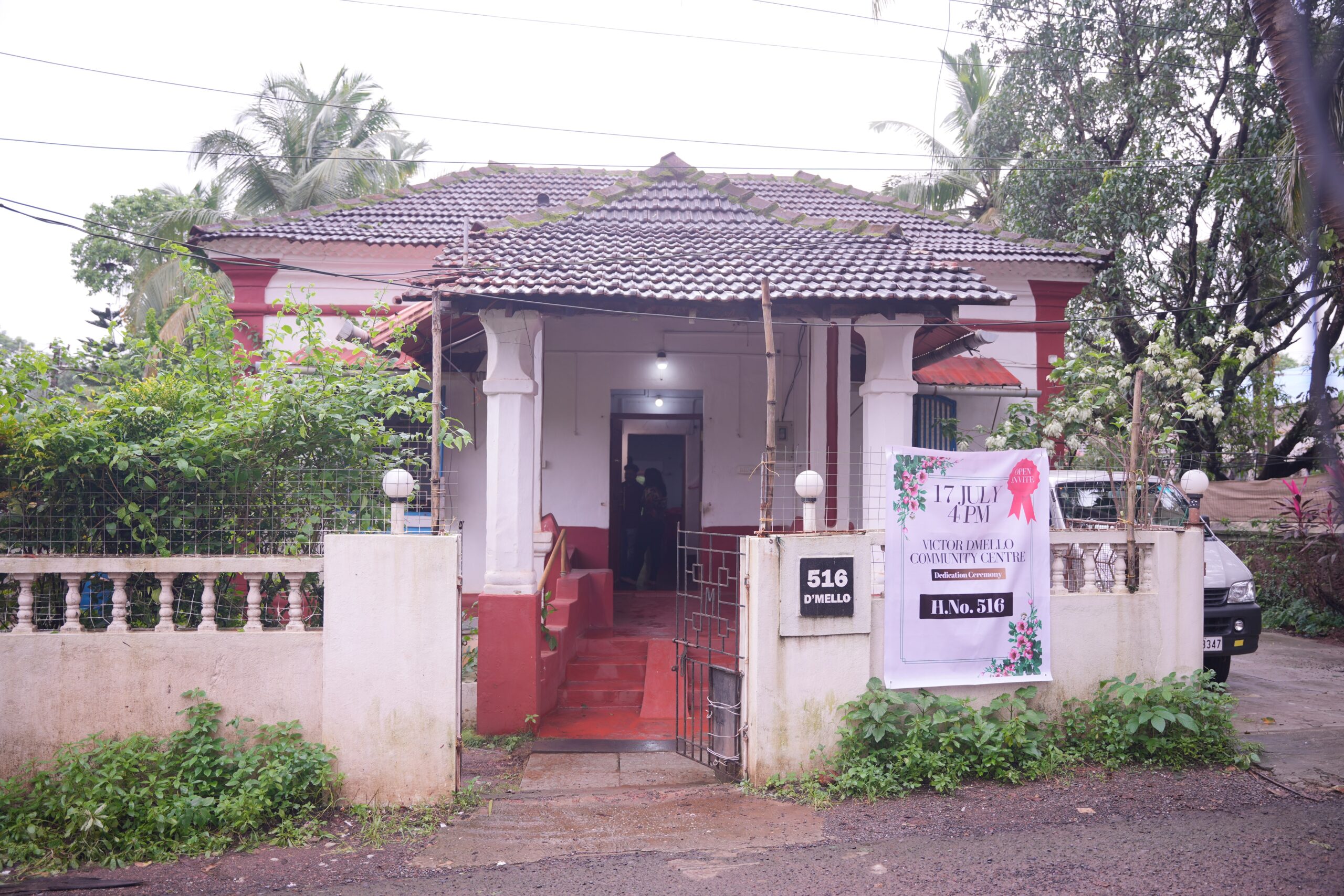
Assagao, once a serene village known for its rich red soil and tightly-knit community, has transformed into a hub of luxurious villas and second homes. Yet, for those who grew up there, the village holds cherished memories of simpler times. Alan DMello, son of the late freedom fighter. Mr. Victor DMello, delves into the reflections of his happy childhood, the changes that have swept through the village and the inspiration behind establishing ‘Victor DMello Community Centre.’
Excerpts from an interview with Alison and Alan DMello
Much before Assagao became what it is now, a haven for expensive villas and second homes, what were your memories of your village as a young boy?
Alison: Happy, very happy memories. We did not know we were missing anything, in reality we were not wanting for anything then, even with the insufficient infrastructure and transport. I spent all my school summers in Assagao, this is how its lovely red soil is part of my soul.
How old is the house? What are its dimensions?
Alison: We are unsure of the precise founding date or year. Current documents estimate our house (#516 Bauto Vaddo) to be 150 years young. It currently has a floor area of 200 sq. mts.

Could you describe your ancestral house, who constructed it and some nostalgic memories associated with it?
Alison: We come from a business family. Our DMello family is from Saligao. An ancestor from there married into an Assagao family. We are not sure who built the current house in the 18th century. It is the only home in the area that is directly on the road with no boundary wall.
As children, our home felt as massive as a universe and stadium. The big hall was for football, the dining room for cricket because it is longer than a pitch. Foxes on the hills, bullock carts passing by the front porch, the baker three houses down, candlelit nights, the smell of mango and jackfruit will always be the smell of home and happy summers. Months and years passed by as fast as nano-seconds.
What factors do you think has led to the current state of affairs in Assagao?
Alan: Social devolution. Having new neighbours is a good thing, especially if they are highly accomplished as the early wave of newcomers were. They spent considerable effort and resources to revive the homes neglected by the villagers, themselves now expats and migrants. It is only the recent wave of speculators who are attracting the wrong class of people for whom Goa is a backdrop for Instagram, a cheaper version of Europe otherwise unattainable to them and for whom Goans are inconvenient background characters in their pantomime.
At a time when property prices in Assagao are shooting through the roof and land is becoming a scarce commodity, why did you take this unique route of creating ‘The Victor DMello Community Centre’ and dedicating the same to the village community? Could you share a few details about Victor D’Mello?
Alan: I have good role models. My father and his generation set the foundation for this country. Putting country/community before self was the norm then, not the exception it is now. Highly accomplished people like my father and his friends knew they had to be socially responsible, to lend a helping hand to those less fortunate, to bring people up the ladder. Everyone benefits when the community progresses. With such role models, setting up the VDCC is a natural path to follow. We are a village of high accomplishments and high achievers. Assagao was a cohesive community till atleast a decade ago. Politics has a large part to play, so does economics in our current social decline. We have a surplus of villas, pools and restaurants, but no centre for the community. Many of our village activities/traditions have been eroded. It is as if our soul is missing. The VDCC is a small step in the path back to reclaiming our community as well as moving forward. We will include rather than exclude our new neighbours. They want to be part of our family, we will show them how. Victor Cajetan DMello (21 Nov, 1930 – 08 Sep, 1996) was a science graduate who had a high profile corporate career. He was also a freedom fighter, against the British
and the Portuguese. He won both times. He was immensely well-read, even-handed and a natural orator. These skills and his advice were sought after by senior community and political leaders. He firmly believed that a proper education was the pathway forward which is why as a board member of the Assagao Association, he focussed on good education for all. For many of the early years, he converted his home, our home, into the village school. He was never one to turn down a request for help, especially with jobs and admissions. Though he moved to Bombay in the 1950’s his heart was in Goa, especially Assagao. In due course, the city, state and village benefited immensely.
The VDCC will be located in his ancestral home in Assagao, H.No. 516 Bauto Vaddo.

What are the core objectives of the Centre? What will the Centre offer?
Alan: The primary focus of the VDCC is education, providing and enabling it for our local community. It is a reflection of our father’s lifelong work for the community. It will house a permanent library of contemporary reading, serve as an education centre for underprivileged village children, as a centre of scholarship and a venue for art, music and activities that enhance the local cultural milieu.
For example, the ‘Assagao Advanced Education Programme’ will nurture and fund Assagao youth towards high skill professional careers such as medicine, law, engineering etc. The ‘Assa Re Gao’ programme will focus on nurturing traditions and hosting community events of global calibre.
How critical do you think it is for Goans to closely examine their ancestral roots?
Alan: As a historian, I often use this statement: ‘We do not know who we are or where we are going if we do not know where we come from.’ We are a product of the past, so everyone, not just Goans, must ensure strong links with their ancestry. Goa and Goan culture is a beautiful thing that needs protection and more importantly needs to be celebrated. Societies and its people evolve. Our today will be someone’s past. We must work hard to prevent our culture from being eradicated.


